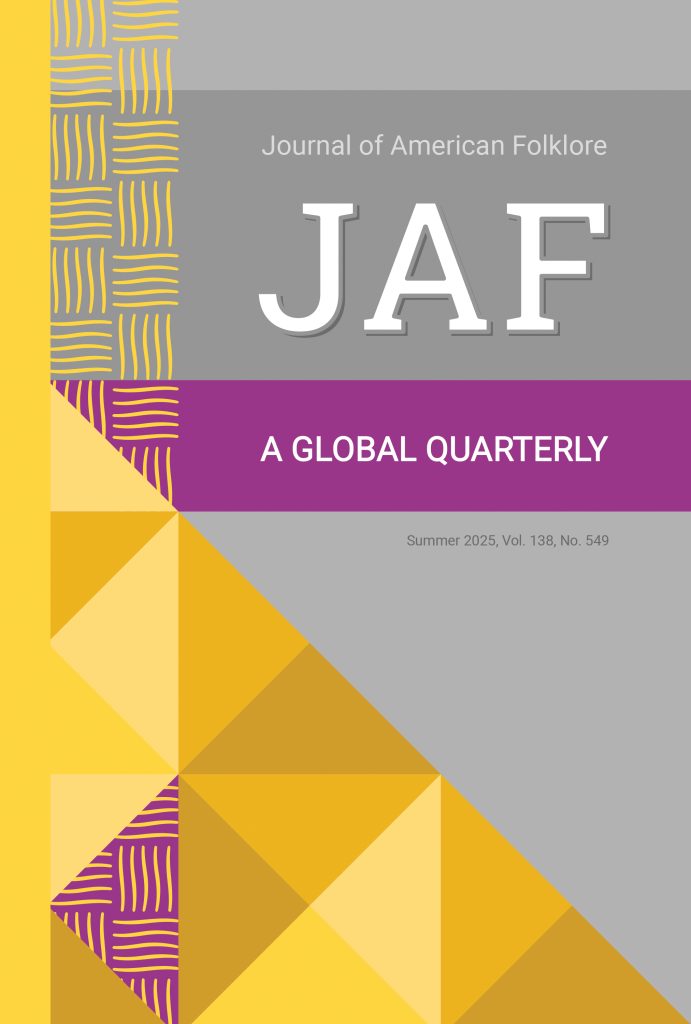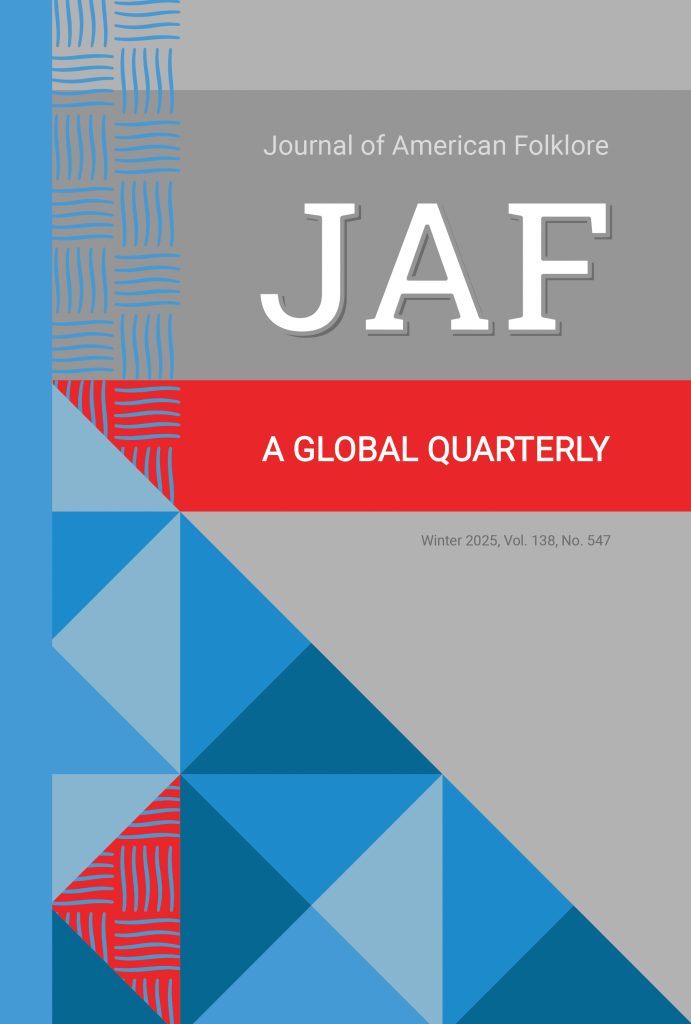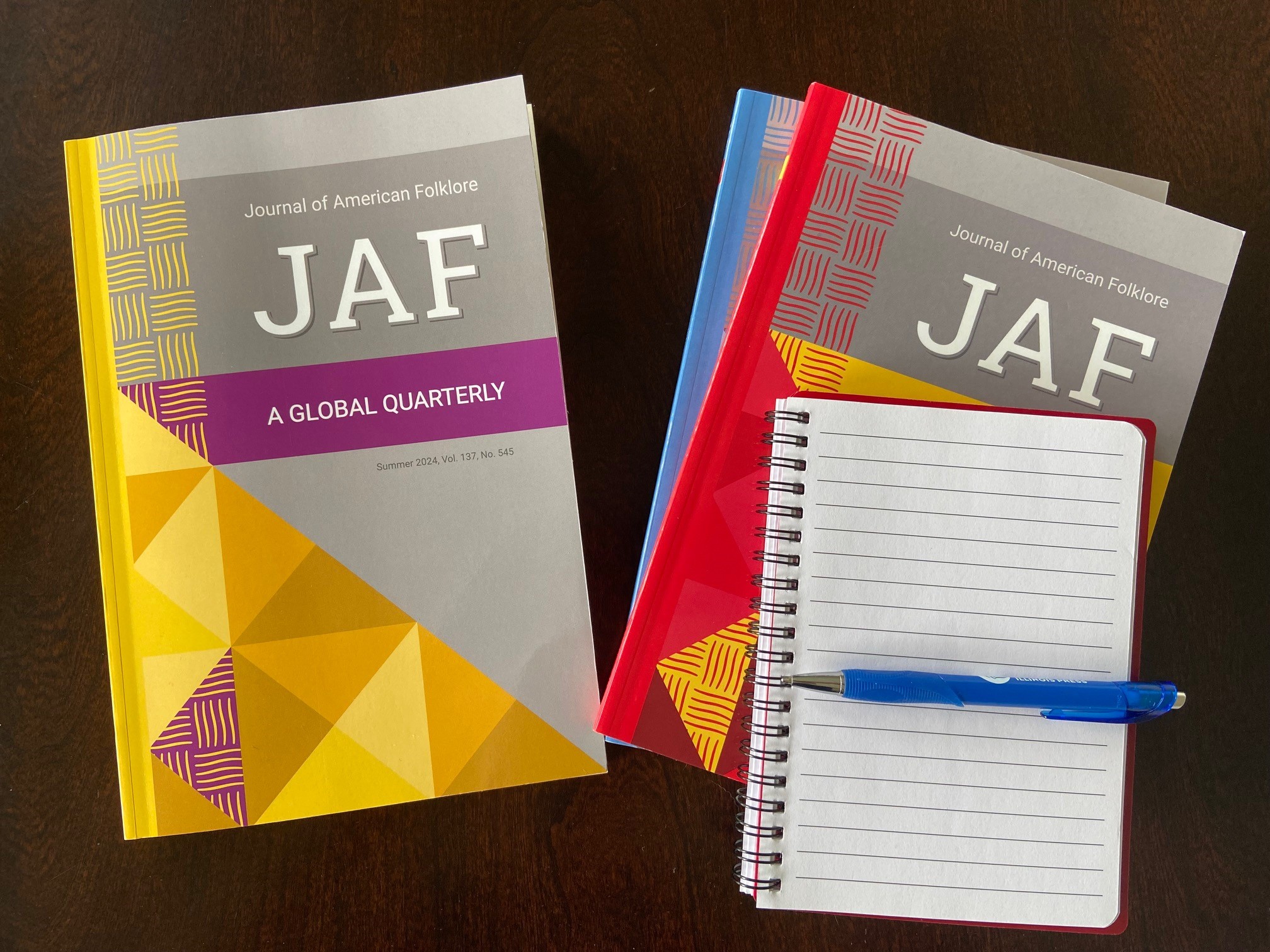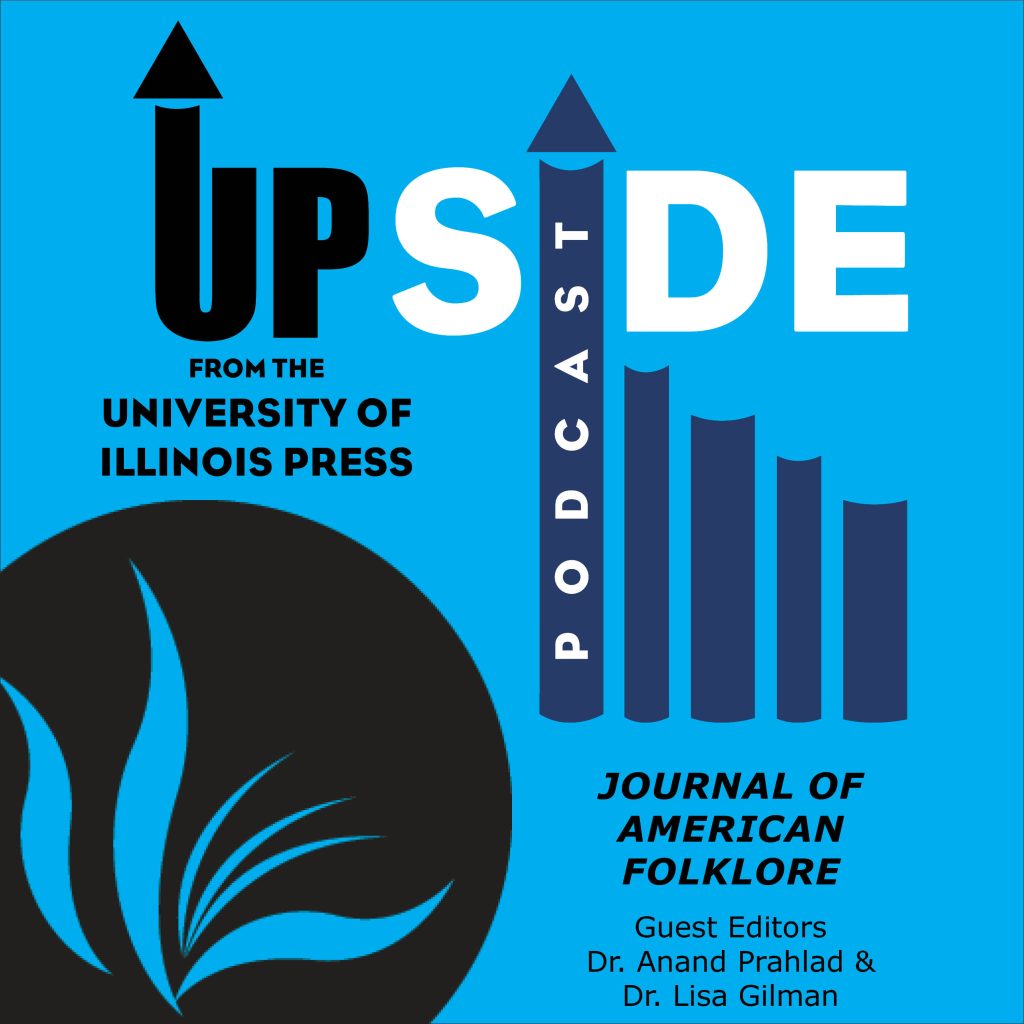In anticipation of the 2025 Annual Meeting of the American Folklore Society (AFS), we invite you to explore a curated selection of articles from the Journal of American Folklore (JAF: A Global Quarterly), available to read for free through November 30, 2025.
The 2025 American Folklore Society (AFS) Annual Meeting will be held in person October 18–21, 2025, in Atlanta, Georgia, with virtual sessions taking place November 12–14, 2025. This gathering brings together hundreds of scholars, practitioners, and enthusiasts from across the US and around the world to explore folklore and folklife, folk narrative, popular culture, music, material culture, and more.
This year’s theme, “Restoring and ReStorying: Missing Stories and Moving Forward,” asks us to consider how different types of folklore can empower those whose voices have been silenced, erased, or reshaped by dominant narratives. The selected readings reflect this theme and extend beyond it, offering insights into both conference-related discussions and ongoing issues in folklore scholarship. From fieldwork safety to community partnerships to global conflict, these articles invite reflection on how stories shape and are shaped by our cultural, social, and political realities. Whether you’re preparing for the conference or simply staying engaged with current issues in the field, the following essays offer meaningful entry points into the complexities of folklore today.
Fieldwork Safety

Interested in issues of safety while doing fieldwork? There will be a session at the conference for just that!
Start with “Safety in the Field: A Reflection and Progress Report” by Mathilde Frances Lind, from Vol. 138, No. 549, which reports on two foundational planning discussions about fieldwork safety. Lind outlines practical strategies for supporting students and early-career researchers, including the development of a safety toolkit for fieldworkers, educators, and public folklore organizations. The article also identifies key challenges and proposes four actionable steps to advance the conversation about safety practices.
Use this framework to prepare for the upcoming session and to think critically about how we care for ourselves and others in the field.
Partnerships in Folklore
How can folklorists build stronger, more responsive partnerships with communities and institutions?
In “This Needs More Time!: Considerations for Improving Partnerships Between Communities and Institutions in Folklore” from Vol. 138, No. 549, author Sarah M. Gordon and Jasper Waugh-Quasebarth with Junious Lee Brickhouse, Ashley Minner Jones, and Naomi Sturm-Wijesinghe share insights from a series of panels at past AFS meetings. Their goal is to help institutions adapt their practices to better support community-engaged work.
This short essay encourages readers to reflect on how disciplinary norms and bureaucratic systems can be reshaped to meet community needs. As you prepare for the conference, consider how these ideas might inform your own collaborative efforts.
In the News: Ukraine

Recent issues of Journal of American Folklore contain timely material on folklore in Ukraine in the context of war.
In “Cursed Russians and Armed Saints: ‘Angry Folklore’ and the Ethics of Precarity in Response to the 2022 Russian Invasion of Ukraine” from Vol. 138, No. 547, Robert Glenn Howard and Mariya Lesiv examine how folklore infused with rage and hostility (sometimes bordering on hate speech) raises ethical questions for researchers and audiences alike. The authors argue that such expressions must be understood in context, especially when they come from communities experiencing extreme physical precarity.
The latest issue (Fall 2025, Vol. 138, No. 550) features “What to Wear When Saving Ukraine: Folkloric References and National Symbolism in Ukrainian Superhero Comics” by Jennifer A. Dickinson. This article explores how Ukrainian comic book heroes interact with the construction of a national identity, drawing on Ukrainian tradition and new narratives shaped by the ongoing conflict with Russia. These articles shed light on the evolving role of folklore in times of conflict and national transformation and resonate with this year’s conference theme, “Restoring and ReStorying: Missing Stories and Moving Forward.” As you engage with these readings, consider how folklore responds to crisis and how it helps communities reclaim and reshape their narratives.
Even More Folklore
- Library Recommendation: Want to see JAF in your library? Fill out this Library Request Form.
- Submit Your Work: We welcome original scholarly articles, notes, commentaries, creative works, and reviews.
- Join AFS: Individual and student memberships can be found at the American Folklore Society website.
- Listen In: Have you heard our podcast episode on “Folklore Studies and Disability”? Listen online or read the transcript on our blog.


